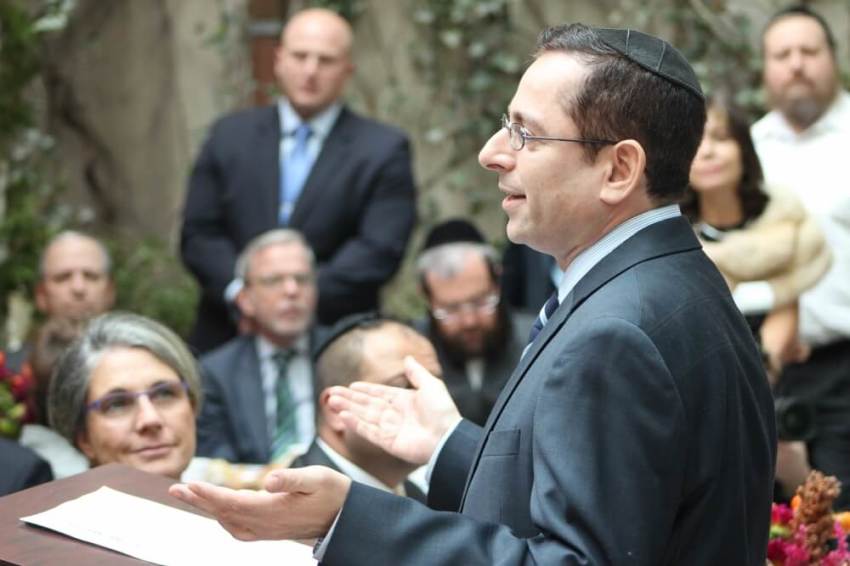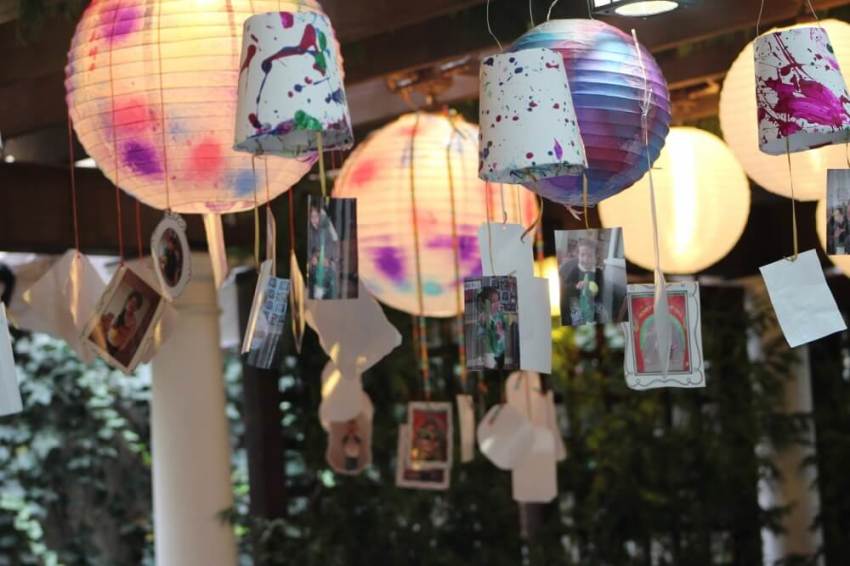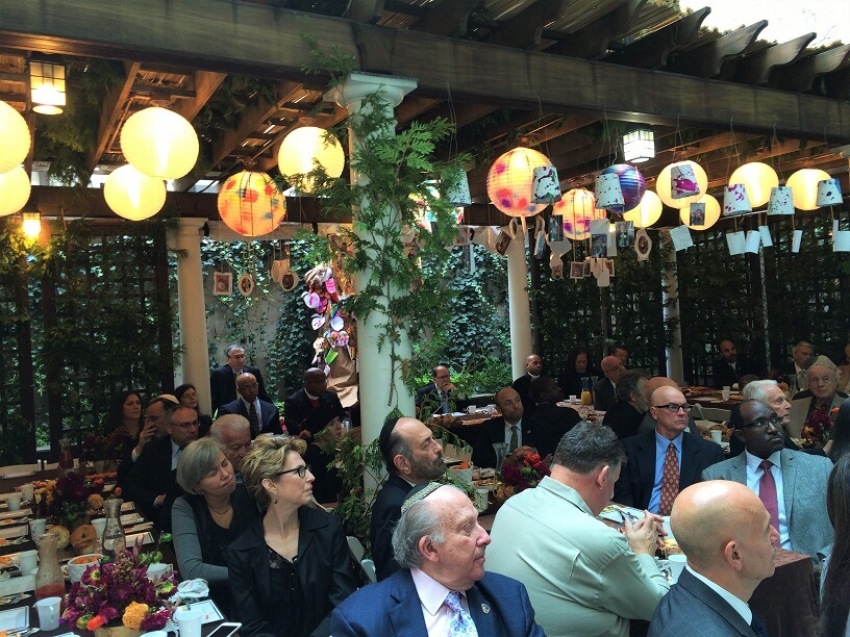At Feast of Tabernacles Celebration, Jews Remember Exodus From Egypt

NEW YORK – When the people of Israel journeyed out of slavery from Egypt through the wilderness toward the land God had promised them as recorded in the Bible, it was a time of sorrow and a time of joy.
It was a time of sorrow because at times on that journey there was a lot of pain and testing of their faith. It was also joyful because God provided for them even as they walked through trials in their new freedom.
And on Thursday, under the open sky on the second floor of the Edmund J. Safra Synagogue on Manhattan's East Side in New York, The New York Board of Rabbis gathered under a well-decorated hut-like structure called a Sukkah, to reflect and pay homage to God for his provisions in Sukkot or the Feast of Tabernacles as Christians know it.
They celebrated with an intimate multi-faith group of dignitaries and friends who had also come to honor the new Consul General of Israel in New York, Ambassador Dani Dayan and New York Police Department Commissioner James O'Neill at an event billed Sukkah in the Sky.
In his reflection on the holy holiday, Rabbi Gideon Shloush, president of The New York Board of Rabbis and spiritual leader at the Congregation Adereth-El told a story.
A man, he said, went on a road trip with his family and his GPS stopped working. He then ran to a gas station and asked for directions. At the gas station someone gives him directions to his destination but also recommends stopping by certain sites on his way he thinks the man would enjoy even though they were not on his itinerary. A few weeks later, when a friend asked the man how his trip went, he told them the best parts were the stops he made along the way.

"I think that often in life we are so hurried to get from point A to point B that we miss out on all the stops. Not only is life about the destination, so much more of it is about the journey," Shloush said.
"So here we are, we are sitting in a Sukkah and the Sukkah is meant to remind us of how God looked after us at the time of the exodus from Egypt on our way to the Promised Land. We sat in huts and we were open to the elements just as we are here but lovingly looked after by Heshem, by God," he explained.
"The message of Sukkot is about our travels. And when we travel, we always bring along a GPS, and to me GPS stands for gratitude, priorities and spirituality. The ability to look up at the heavens… we can appreciate what it means to be grateful for our lives. It's also about reorganizing our priorities. True happiness can be found even in the [most infertile circumstances] and finally, slow down and have some spirituality in your life," Shloush urged.
Observing the appearance of the Sukkah at the celebration, Rabbi Alvin Kass, the longest serving chaplain in the history of the NYPD, reminded the audience that the symbolic structure also had a "darker side."
"Its appearance here is an occasion of great joy but you should know there is a darker side to Sukkahs. You sit in a temporary, shaded booth which does not have too much strength or solidity to it," he said of the frail structures the Jews sheltered in as they made their way through the wilderness towards the Promised Land.

Referring to the celebration he said: "It's also a holiday where we pray every day, ask God to save us, we recite Geshem a prayer for rain because we acknowledge our reliance upon the vagaries of nature. It's also a holiday when we read about the death of Moses."
The Sukkah for him, Kass said, is "really about human vulnerability."
Ambassador Dayan in his reflection on the holiday called it a "festival of social justice."
"The responsibility that Sukkot gives us is to remember one day after Sukkot that all men and women are created equal. That we have a social responsibility also one day after Sukkot and let's pray that we stand for that challenge and remember that social responsibility also one day after Sukkot," Dayan said.
"You will not be surprised if I say that I love my country very much. I am proud of it extremely. I think that the miracle that is Israel, the fact that from the ashes of the holocaust we built a start-up nation. We became a thriving economy, a vibrant democracy and the national home for the Jewish people it's not an obvious accomplishment," he added.
Rabbi Joseph Potasnik, executive vice president of the New York Board of Rabbis, encouraged the group to stand up for what they believe.
"I know that years ago in Poland, there were those who said to the Jews, 'if only you would dress and speak like everyone else you would be accepted. Well, fast forward to Germany, Germany Jews spoke and dressed like everybody else. You know what happened there," said Potasnik. "So the lesson is, on Sukkot and throughout the year that no matter what faith you represent…stand up for what you believe in and you will find that people will respect you a lot more and you'll respect yourself a lot more."

































